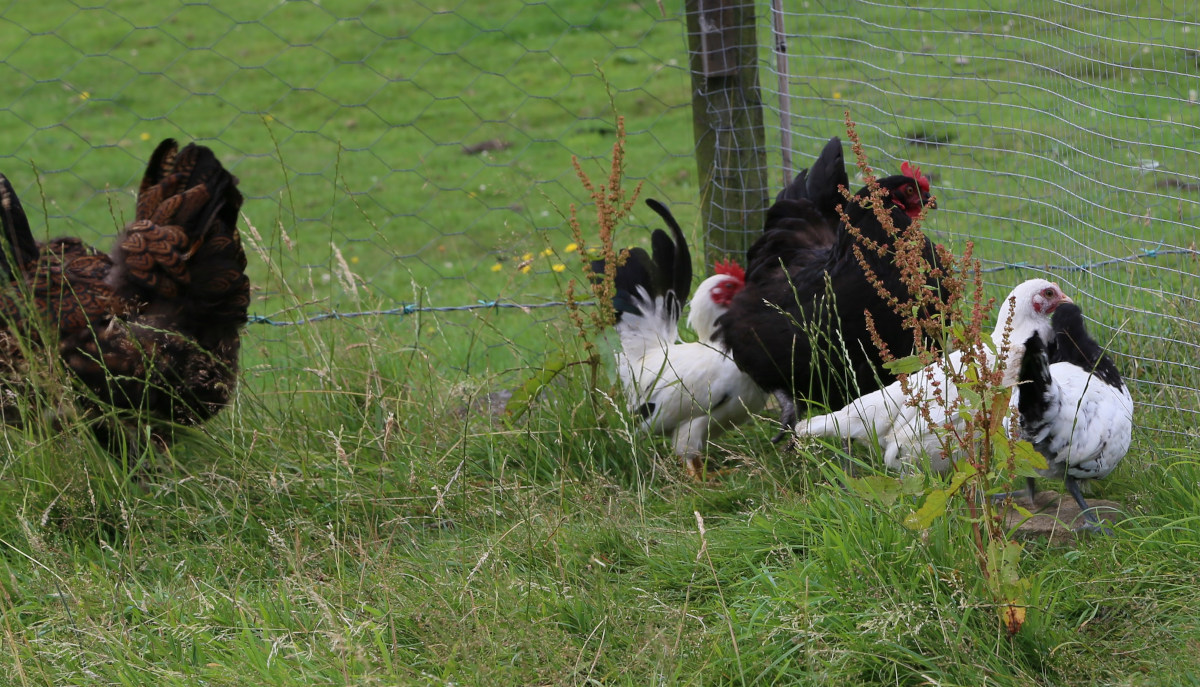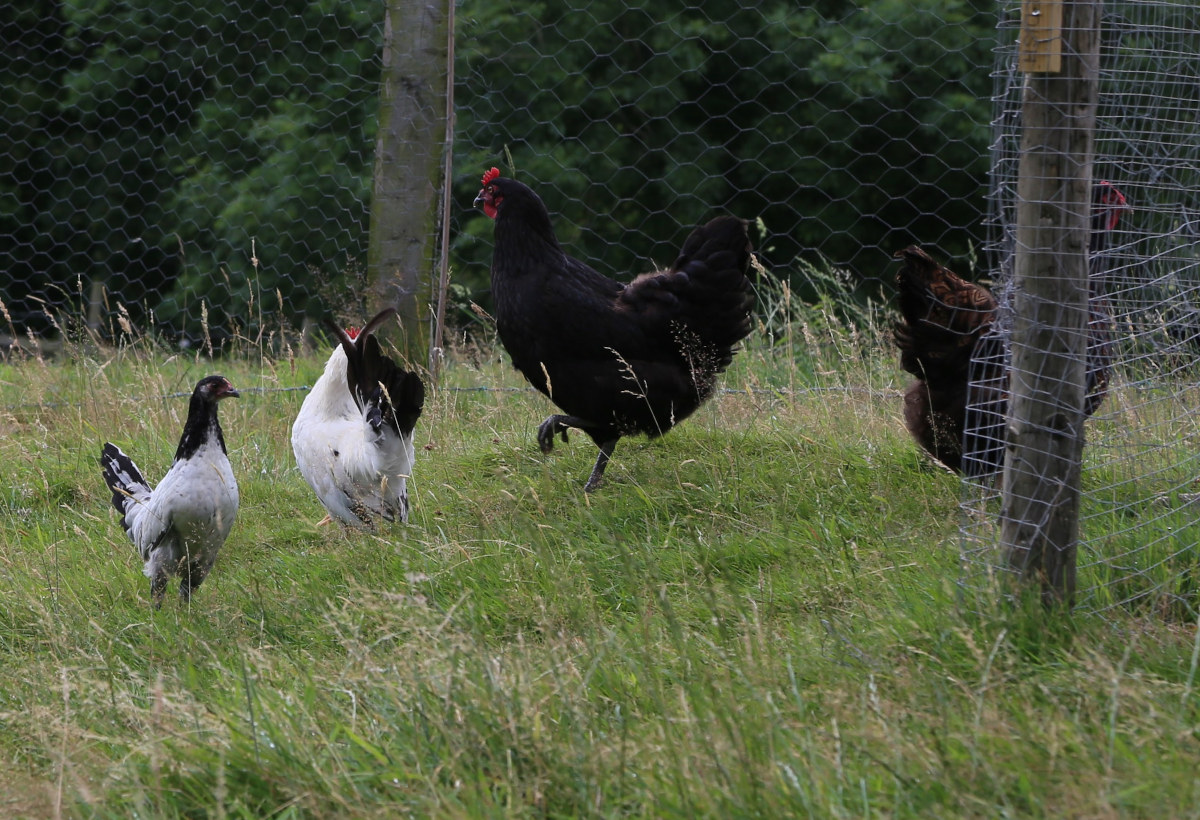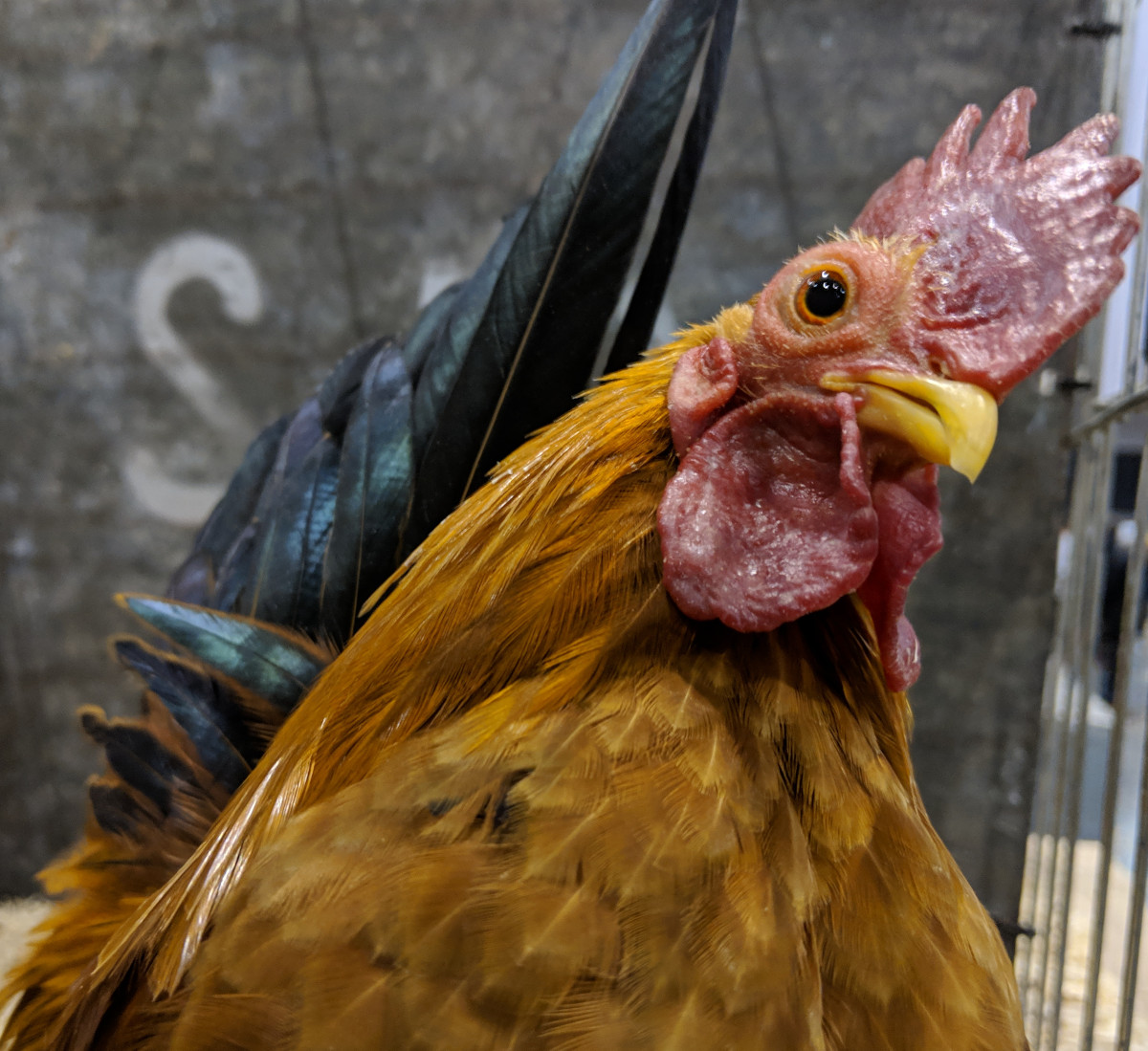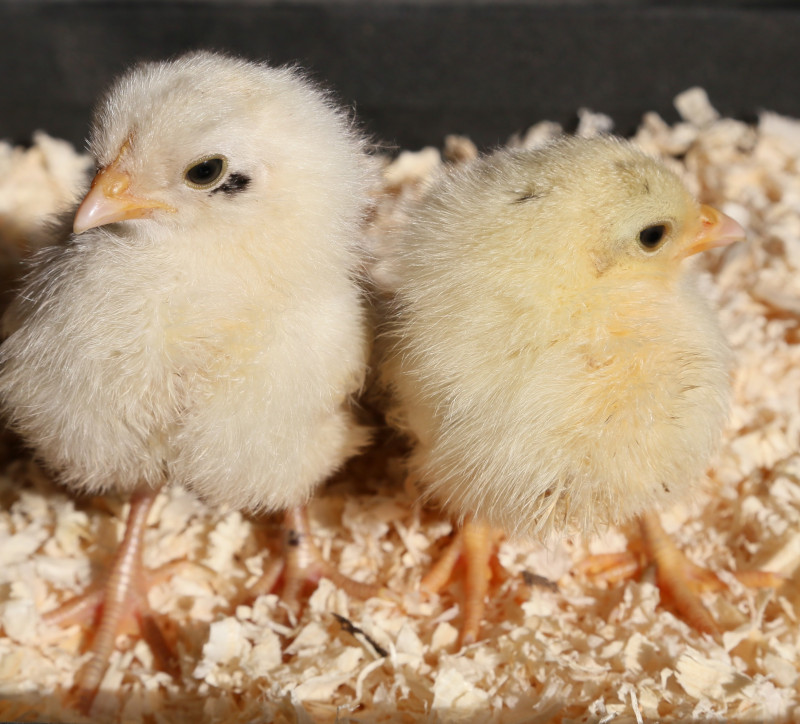
Are Japanese bantams right for you. The pros and cons.
Here is a list of the pros and cons of keeping them as well as their characteristics and what it means for you.
The only other chickens I have got that are more likely to fly up to my shoulders or head are my Spangled Hamburgs.
Below: I keep my Japanese bantams free range with my other chickens unless they are penned up for breeding.

You can see they have no problems getting around in long grass or dealing with the big hens.
Pros of keeping Japanese bantams:
- They are small and easy to handle,
- Their size means they are cheaper to feed,
- Mine get on well with the large fowl hens,
- You can keep Japanese bantams in a smaller space,
- Japanese bantams are great characters,
- The hens are placid broodies and make good mothers,
- The cockerels are generally good in nature,
- They make good pets for kids.
I have to say I particularly like having my little Japanese bantams around, they are great characters and have no trouble with the big hens or getting up to the perches.
Cons of keeping Japanese bantams:
- Japanese bantams do not do well in cold and wet weather,
- The short legs mean they get dirty easily,
- They carry a lethal gene which makes them more difficult to hatch and breed,
- While the eggs are delicious, they are small and produced infrequently,
- Their small stature makes them easy prey for cats and predators that might never take on large fowl chickens,
- The chicks take longer to mature and require heat for longer,
- They fly surprisingly well and slip through small holes,
- Japanese bantams are more expensive and rarer than some other breeds of chickens,
- You have to rear them yourself or buy them un-sexed meaning you will have surplus cockerels do deal with,
Below: The Japanese bantam is a great character and good with humans.

Japanese bantam characteristics:
The main characteristic of the Japanese bantam is the large, graceful oversized sickle tail that reaches well above the height of the head and the short legs that give them the impression of scurrying around.
Below: The chicks are small and take a little longer to mature.

Bantam chicken breeds are a great choice for beginner chicken keepers. They cost less to keep, are easier to handle, take up less space and make great pets for kids.
